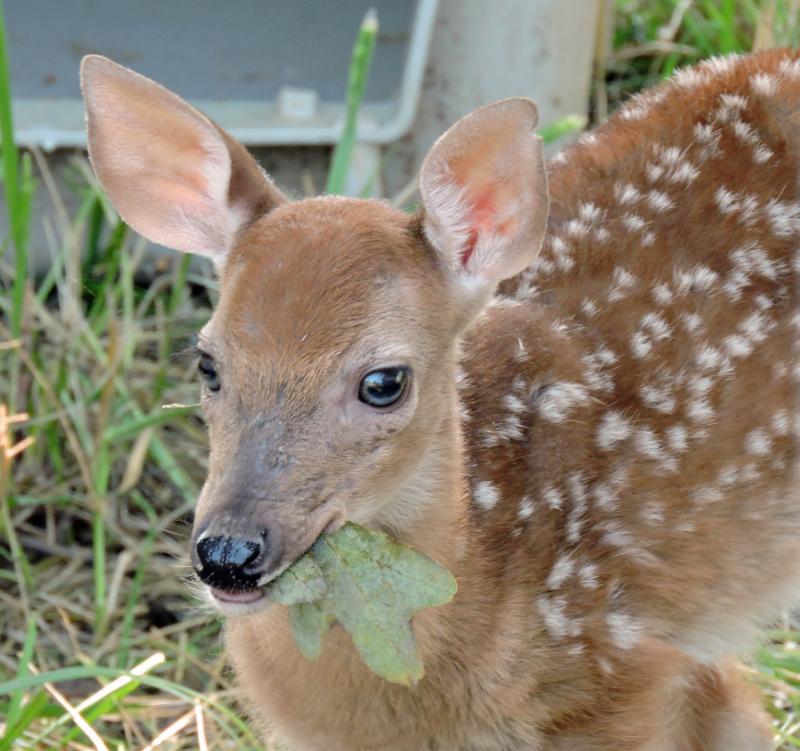Last year we started a rehabilitation program for native wildlife through the Missouri Department of Conservation. This is an opportunity for us to help injured or young animals that can be nursed to health and returned to the wild. In the state of Missouri, native animals can only be cared for by licensed rehabilitation facilities, because it is illegal for a resident to keep a native species in captivity.
Our first year with a rehabilitation license has been off to a busy start! It started with a three-toed box turtle (
Terrapene carolina
) that appeared to have been struck by a vehicle. Next, we received an aquatic turtle, known as a red-eared slider (
Trachemys scripta
), that was hit by a truck just as someone stopped to help it across the road. The citizen was devastated that she was unable to move the turtle before a careless driver hit it right in front of her. The same day we accepted a western rat snake (
Pantherophis obsoletus)
also believed to have been clipped by vehicle. Reptiles that have been struck by vehicles have a very tough road to recovery, but it can be done!

In addition to reptiles, we have also been caring for some baby mammals! First
, a citizen brought us a very young striped skunk (
Mephitis mephitis
) he found alone in his barn. Its eyes opened only a few days before it was given to us. Shortly thereafter, we received two baby raccoons (
Procyon lotor
) that were picked up by our conservation officer
. Our most recent rehab baby is a young fawn (Odocoileus virginianus) that was taken in by some people and kept in their house. Sadly, many people take baby animals out of the wild believing they need help when in fact the mother is just temporarily away. It is not uncommon for mothers to leave healthy babies alone and return for them after a day of foraging.

The goal of any rehab animal is to return it to the wild. As a result, it is important that the animals have minimal exposure to humans. We keep them isolated from people and other animals and only disturb them when care and cleaning are required.
Once they get old enough, they are moved to outdoor holding areas to get acclimated to their natural environment. Next, we introduce a variety of foods that will be available to them in the wild and provide species-appropriate foraging opportunities. This ensures that they have an opportunity to practice the skills they will need to survive on their own!
When they are prepared for life in the wild, we open the door to their cage so they can get their first taste of freedom! We will leave their cage in place so they can return to it as a safe haven until they become established. We also continue to leave food for the animals. As they become more familiar with their surroundings and start finding their own sources of food, they will become less and less dependent on the shelter and food we provide. Gradually, they transition into the lifestyle of a wild animal! This technique is known as a soft release.
Although it can be hard to say goodbye to animals we cared for and deeply loved, we know they are returning to their natural environment to live the life they were meant for. Through your partnership and support, together we can save the lives of native animals and help keep our local ecosystems flourishing with life. For that, us and the animals thank you!